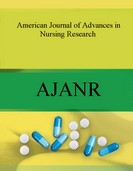Abstract
Title
EFFECTIVENESS OF STRUCTURED TEACHING PROGRAMME
ON KNOWLEDGE REGARDING IRON DEFICIENCY ANEMIA
AMONG ADOLESCENT GIRLS IN SELECTED NURSING
COLLEGE, BANGALORE
Author
Tejeshwari BV,Devika, Jincy Rachel, LisinaEmmanuval, Gokulnath S
Email
tejeshwinirajesh@gmail.com
keyword
Effectiveness,
structured teaching
programme,
Knowledge, iron
deficiency anemia,
adolescent girls
Abstract
Anemia is one of the most common public health problem worldwide and
especially in developing countries. Most common type of nutritional anemia in iron
deficiency anemia due to rapid growth and developmental process of adolescent. Anemia is
defined as a condition in which the number of Red Blood Cells (RBC) and their oxygen -
carrying capacity is insufficient to meet the body?s physiological needs. It's a condition
when the normal number of RBCs (<4.2 million/dL) or Hemoglobin (Hb) level (<12g/dL)
in women and <13 in men [1]. Adolescence is the phase separate from both early childhood
and adulthood. It is a transitional period that require special attention and protection
.Physically children go through a member of transition while affect emotional skill as well
as physical and mental abilities.[2]Globally, anemia is the most common and inflexible
nutritional problem affecting around 2 billion of the world?s population having major
impact on human health and social and economic development, more that 89% of this
burden occurred in developing countries. Accounting for half of all cases, iron deficiency
anemia is the most common cause of anemia. However other conditions like nutritional
deficiency, acute and chronic inflammations, parasitic infections, growth spurt, increase in
iron requirements, increased iron loss from the body during the menstruation, inherited or
acquired disorders of hemoglobin synthesis, RBC production or survival are also
considered cause of anemia.[3] Design:-Pre-experimental design (one group pre-test posttest design) was used for this present study of effectiveness of structured teaching
programme on knowledge regarding iron deficiency anemia among Adolescent Girls In
Selected Nursing College, Bangalore. 60 Nursing students were recruited by nonprobability purposive sampling technique. Necessary administrative permission was
obtained from concerned authority. Structured interview schedule was used to elicit the
baseline data and structured questionnaires were used to elicit the knowledge regarding
Iron deficiency anemia, among of nursing studentsSetting:-The study was conducted in
selected Nursing College, Bangalore, 60 samples were selected for the present study.
Result: - The study revealed that among 60 nursing students, 9 (15%) nursing students had
adequate knowledge, 51 (85%) nursing students had moderately adequate knowledge &
there was no inadequate knowledge found in the post-test score. The mean pre-test
knowledge score of nursing students was 16.5, whereas the mean post-test knowledge score was 23.6. The obtained „t” value was 12.05 which was found statistically significant 0.05
levels. Conclusion :- The study concluded that the structured teaching programme on
knowledge regarding iron deficiency anemia among Adolescent Girls from selected
nursing college, Bangalore carried out, the study was found to be effective in the improving
knowledge of nursing students as evidenced by the significant change between pre-test and
post-test knowledge score













